Buying a House in Spain as an American: Your Essential Guide
As published in medium.com by our General Manager Shahab Soltani
Spain is a top destination for expats seeking a delightful climate and an elevated standard of living. Whether you’re eyeing a professional stint in cities like Madrid, Barcelona, Marbella or Valencia, or envision retiring along the Spanish coast, your ideal Spanish home awaits.
In this guide tailored for American buyers, we’ll walk you through every aspect of purchasing property in Spain.
📑 Table of Contents
- What’s the Property Market Like in Spain?
- Can Americans Buy Property in Spain?
- How to Buy a House in Spain: Step by Step
- Cost of Buying Property in Spain
- Finding and Choosing Property in Spain
- Getting a mortgage in Spain
- Pitfalls of Buying Property in Spain
- What’s the Best Place to Buy in Spain?
- What Are the Legal Requirements of Buying a Property in Spain?
What’s the Property Market Like in Spain?
Spain boasts a homeownership rate of 76%, significantly surpassing the US average of 65%. The influx of expat communities has led to a substantial portion of real estate now owned by foreigners. Despite a tumultuous past, the Spanish property market has reemerged as a robust investment avenue. With a notable resurgence, spurred on despite global challenges, investing in Spanish real estate remains appealing.
Spanish property is now starting to be seen by many as a strong investment once more. This renewed interest has pushed up prices, despite the negative impact of the global pandemic. Property prices in Spain rose by 2.6% in 2021, and reports of 2023 shows the pace of this increase is not expected to slow any time soon recording an average of 7% growth across country.
Can Americans Buy Property in Spain?
Fortunately, there are no special hoops for Americans — or any foreigners — to jump through when purchasing property in Spain. The Spanish government actively encourages foreign investment, ensuring a smooth buying process. Ready to embark on your Spanish real estate journey? Contact us to explore available properties tailored to your preferences and our advisors will explain the steps necessary for your registration here in Spain.
How to Buy a House in Spain: Step by Step
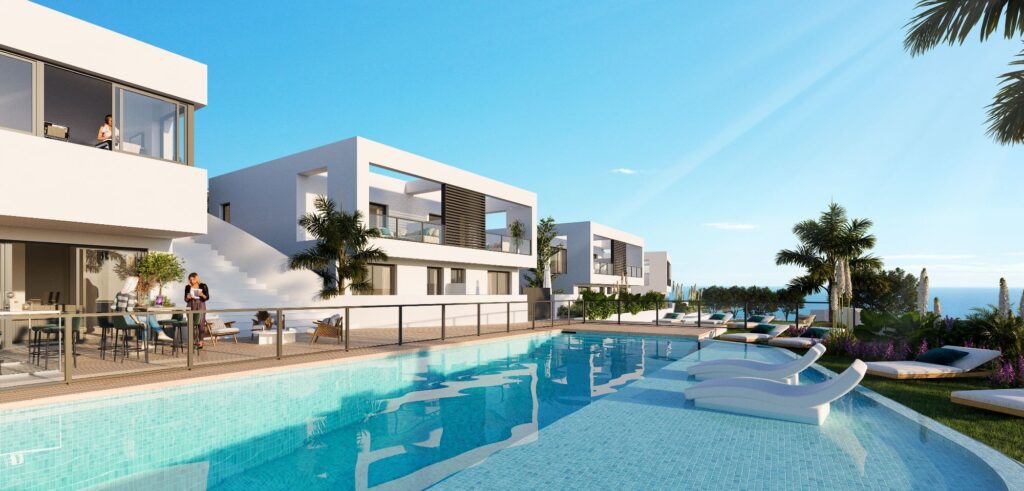
1. Set Your Budget
Determine your financial parameters, considering potential mortgages if needed. Explore various mortgage options to align with your budget. In Spain mortgage rates are much lower than US and Americans can apply for mortgage from Spanish banks,
2. Obtain Your NIE and Assemble Your Team
Secure your Número de Identificación de Extranjeros (NIE) through Spanish embassy or if in Spain through National Police and enlist a proficient property advisor well-versed in Spanish property laws and regulations.
Open your bank account with the help of your advisors as you will need it for completing the transaction as well as setting up utilities and other services.
3. Find Your Dream Property
Find your desired area and be ready to search for a few months with the help of your advisor. Once ready, make an offer and have your lawyer draw up a reserve contract, and initiate due diligence checks.
4. Conduct Due Diligence Checks
Ensure property ownership legitimacy and conduct necessary surveys. There are many lisences and permissions required to proceed with your purchase and to be able to rent out your property for passive income. This step needs to be done by the legal team and finalize mortgage arrangements if applicable.
5. Sign and Pay Your Deposit
Execute the preliminary agreement and submit your deposit, facilitated by your lawyer which gives both partied time to complete the remaining arrangements. Sign the preliminary agreement — known as the Contrato Privado de Compraventa, and pay your 10% deposit. Your deposit must usually be paid within 10 days of the agreement being signed.
Make sure this includes an arres agreement. This means that if the seller subsequently withdraws the agreement you’re entitled to double your deposit money back. Any final legal checks can now be completed, so you’ll be ready to close the sale.
6. Close and Register the Sale
Both you and the seller will sign the Escritura de compraventa, to complete the purchase at the notary.
You now have to pay the balance of the price and any outstanding fees. Your lawyer will help you to register the sale at the Notaria Publica (notary), and you’re done!
Cost of Buying Property in Spain
Property prices vary significantly depending on location, with cities like Madrid and Barcelona commanding higher costs with averages of 4~5K Euros/Sqm while in some costal towns this rate could go down to 2.5K Euros/Sqm. Therefore, Spain’s diverse housing offerings cater to a broad spectrum of budgets. From ultra luxury villas and mansions in Marbella to charming apartments in the old town, one is sure to find their dream house in Spain. Average property prices vary from 150,000 Euros to 350,000 Euros.

Taxes and Fees
When it comes to taxes, depending on the province, you should expect to pay between 6 to 10%. Keep in mind new developments will be subjected to 10% VAT all across Spain. In addition to that there is the cost of notary, land registration and advisor/lawyer fees which should end up between 2 to 3 %.
Finding and Choosing Property in Spain
Navigating the Spanish property market involves leveraging real estate agencies, online portals, or neighborhood inquiries. Considerations such as property type, condition, and location play pivotal roles in your selection process.
Getting a Mortgage in Spain

When purchasing a property in Spain, many buyers opt to secure a mortgage through a local Spanish bank. The Spanish banking sector caters well to foreigners, owing to the significant expatriate community. Major Spanish banks such as BBVA, La Caixa, and Santander offer a diverse range of mortgage products tailored to both resident and non-resident applicants. However, it’s essential to scrutinize the fine print, as each product may vary slightly in its terms and conditions.
Non-resident mortgages typically come with more stringent conditions compared to those offered to full-time Spanish residents, often requiring a higher deposit. For individuals planning a permanent move to Spain, it’s advisable to consider opening a Spanish bank account and securing a mortgage once legal residency is confirmed.
When it comes to selecting a bank, buyers have the option to either directly engage with a bank or collaborate with a mortgage broker to find the most suitable loan for their Spanish property. Working with a broker can be advantageous, especially for those who may benefit from expert guidance and a deeper understanding of the local banking system.
Once a mortgage product is chosen, prospective buyers typically need to visit the bank in person to obtain a mortgage agreement in principle. This preliminary agreement provides a clearer picture of affordability and requires demonstrating creditworthiness by verifying income and expenditures.
Regarding the deposit, it’s customary to pay approximately 10% of the property’s value, which is held until the transaction is finalized. For buyers transferring funds from the US, we offer customized solutions to help lower the cost of exchange and transfer while ensuring security.+
Choosing the Perfect Property: Factors to Consider
Selecting the right property in Spain involves weighing various factors to align with your lifestyle and investment goals. Here are key criteria to contemplate when making your decision:
Purpose of the Property
To Live In:
- Pros: Enjoying a comfortable and convenient living space tailored to your preferences. Customizable building materials, appliances and interior design.
- Cons: Limited potential for generating rental income, especially if located in tourist-centric areas.
To Invest (Buy to Let):
- Pros: Potential for rental income and capital appreciation, particularly in tourist hotspots over 10% annually in major areas.
- Cons: Requires ongoing management and may be subject to seasonal demand fluctuations.
Location
Close to Golf Resorts:
- Pros: Access to upscale amenities, exclusive communities, and potential for luxury living.
- Cons: Higher property prices and living costs compared to other areas.
Beachfront:
- Pros: Stunning ocean views, proximity to recreational activities, and potential for lucrative short-term rentals.
- Cons: Property premiums and susceptibility to seasonal fluctuations in demand.
City Center:
- Pros: Convenience, cultural attractions, and access to a vibrant urban lifestyle. Better rental yields.
- Cons: Higher property prices, noise, and congestion compared to suburban or rural areas.
Rural Areas:
- Pros: Tranquility, affordability, and potential for a more authentic Spanish experience.
- Cons: Limited amenities and access to services, as well as potential isolation.
Each option offers distinct advantages and drawbacks, so carefully evaluate your priorities and long-term objectives before making a decision. Whether you prioritize luxury living, seaside relaxation, urban excitement, or rural tranquility, there’s a perfect property waiting for you in Spain. Also, with professional property management services, you could earn considerable passive income from your home hassle-free.
Pitfalls of Buying Property in Spain
Avoid potential pitfalls by engaging reputable property lawyers, conducting thorough due diligence, and verifying the legitimacy of deals.
What’s the Best Place to Buy in Spain?
Marbella, Costa del Sol: A Jewel of the Mediterranean
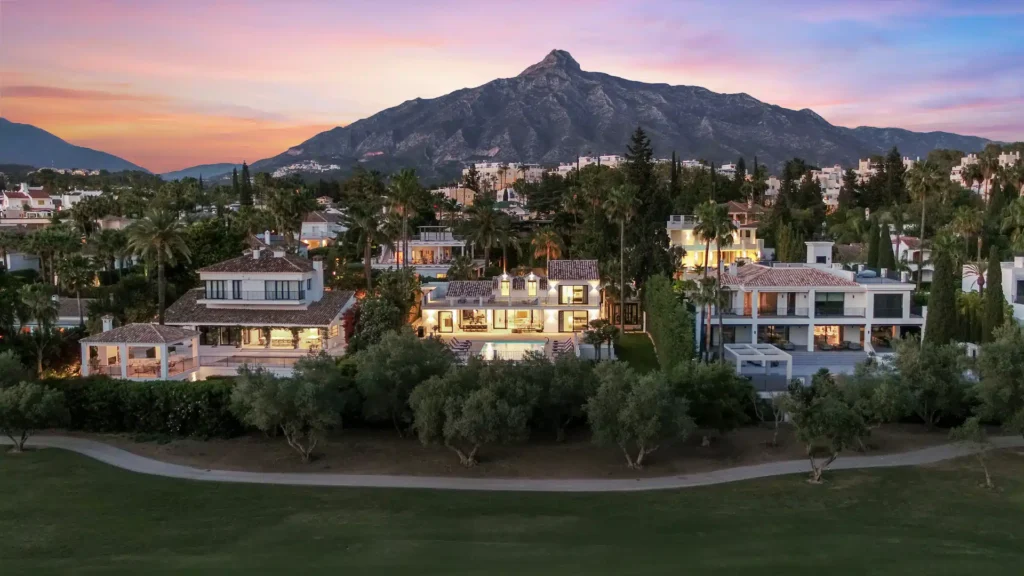
Nestled along the sun-kissed shores of the Costa del Sol, Marbella beckons with its unparalleled blend of luxury, leisure, and Mediterranean charm. Renowned as a playground for the affluent, this coastal gem offers a lifestyle that seamlessly merges sophistication with relaxation.
For Living:
- Luxury Living: Marbella boasts upscale residential areas, such as Puerto Banús and Sierra Blanca, known for their opulent villas and exclusive estates.
- Recreational Paradise: From world-class golf courses to pristine beaches and upscale marinas, Marbella offers abundant opportunities for outdoor enjoyment.
- Cultural Delights: Explore the historic Old Town with its cobblestone streets, picturesque squares, and charming boutiques, or indulge in gourmet dining at Michelin-starred restaurants.
For Investment:
- Rental Potential: Marbella’s status as a premier tourist destination ensures a steady demand for rental accommodations, particularly during the summer months.
- High-end Market: The allure of Marbella’s luxury lifestyle attracts affluent travelers seeking upscale accommodations, presenting lucrative opportunities for investors.
- Year-round Appeal: With its mild climate and year-round sunshine, Marbella offers a consistent flow of tourists, making it an attractive investment destination for holiday rentals.
Madrid: The Vibrant Heart of Spain
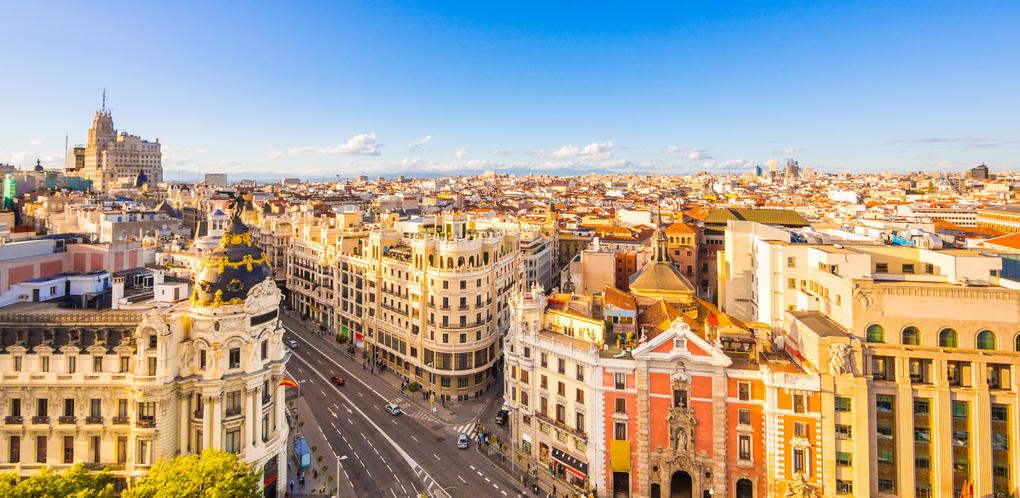
As the dynamic capital of Spain, Madrid pulsates with energy, culture, and opportunity. From its world-class museums and historic landmarks to its lively nightlife and cosmopolitan vibe, Madrid captivates visitors and residents alike with its irresistible charm.
For Living:
- Cultural Hub: Immerse yourself in Madrid’s rich cultural scene, with iconic attractions such as the Prado Museum, Reina Sofía Museum, and Royal Palace.
- Gastronomic Paradise: Indulge in Madrid’s culinary delights, from traditional tapas bars to innovative Michelin-starred restaurants, offering a taste of Spanish cuisine at its finest.
- Diverse Neighborhoods: Whether you prefer the historic charm of neighborhoods like Malasaña and Lavapiés or the upscale ambiance of Salamanca and Chamberí, Madrid offers a diverse range of living options.
For Investment:
- Stable Market: Madrid’s robust economy and steady population growth contribute to a stable real estate market, making it an attractive investment destination.
- Rental Demand: With a large student population, expatriate community, and influx of tourists, Madrid offers ample opportunities for rental income across various property types.
- Business Hub: As Spain’s political, financial, and cultural center, Madrid attracts professionals and entrepreneurs, driving demand for residential and commercial properties alike.
Valencia: Where Tradition Meets Innovation

Nestled along Spain’s eastern coast, Valencia seamlessly blends centuries of history with a modern, vibrant ambiance. From its stunning architecture and bustling markets to its thriving arts scene and culinary delights, Valencia captivates visitors with its unique blend of tradition and innovation.
For Living:
- Historic Charm: Explore Valencia’s historic center, home to iconic landmarks such as the Cathedral, Silk Exchange, and Central Market, showcasing the city’s rich heritage.
- Cultural Diversity: Experience Valencia’s multicultural vibe, with vibrant festivals, art exhibitions, and performances celebrating its diverse cultural heritage.
- Mediterranean Lifestyle: Enjoy the city’s proximity to beautiful beaches, scenic parks, and outdoor recreational activities, perfect for those seeking a laid-back Mediterranean lifestyle.
For Investment:
- Emerging Market: Valencia’s growing popularity among tourists and expatriates has fueled a surge in real estate demand, presenting opportunities for investors seeking emerging markets.
- Tourist Appeal: With its stunning beaches, historic attractions, and renowned cuisine, Valencia attracts visitors year-round, offering potential for rental income in the tourism sector.
- Innovation Hub: As a leading center for innovation and technology, Valencia’s booming economy and thriving startup scene contribute to its attractiveness as an investment destination.
Barcelona: Where Culture Meets Creativity
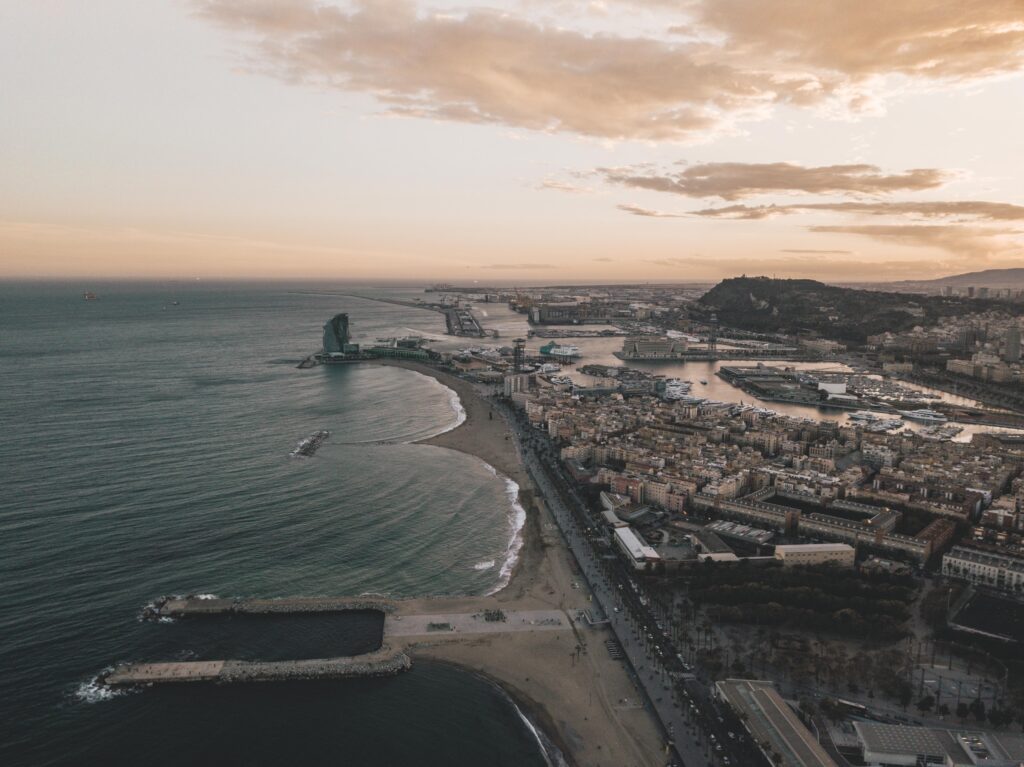
Perched on the northeastern coast of Spain, Barcelona captivates with its vibrant energy, eclectic architecture, and avant-garde spirit. From the iconic landmarks of Gaudí to the bustling streets of La Rambla, Barcelona delights visitors with its unique blend of culture, creativity, and cosmopolitan flair.
For Living:
- Architectural Marvels: Discover Barcelona’s architectural wonders, from the surreal splendor of the Sagrada Familia to the whimsical designs of Park Güell, showcasing the genius of Antoni Gaudí.
- Cultural Capital: Immerse yourself in Barcelona’s cultural scene, with world-class museums, galleries, theaters, and music venues catering to all tastes and interests.
- Dynamic Neighborhoods: Experience the diversity of Barcelona’s neighborhoods, from the bohemian charm of Gràcia to the beachfront luxury of Barceloneta, offering a range of living options to suit every lifestyle.
For Investment:
- Tourism Hotspot: Barcelona’s status as a top tourist destination ensures a constant demand for short-term rental accommodations, presenting lucrative opportunities for investors in the hospitality sector.
- Creative Hub: With its thriving arts, design, and technology sectors, Barcelona attracts a diverse community of professionals and entrepreneurs, driving demand for residential and commercial properties.
- International Appeal: Barcelona’s cosmopolitan ambiance and Mediterranean lifestyle appeal to a global audience, making it an attractive investment destination for both local and international buyers.
Differences between Living in Spain and in the United States
Living in Spain offers several distinct advantages compared to the United States. Firstly, Spain boasts a lower cost of living, making it more affordable for residents to enjoy a comfortable lifestyle. Additionally, Spain’s infrastructure is well-developed, with a comprehensive network of rail and highways, providing efficient transportation options for residents. Moreover, Spain offers better and more affordable healthcare, including dental care, which has fostered a growing trend of medical tourism. Finally, Spain boasts a high level of safety and inclusivity, with low levels of racism, creating a welcoming environment for residents from diverse backgrounds.
What Are the Legal Requirements of Buying a Property in Spain?
From notarial procedures to legal representation, understanding the legal landscape ensures a seamless property acquisition process. Make sure you have a professional and trustable representative by your side.
Now you may embark on your Spanish real estate journey with confidence.
Buying your dream home in Spain is within reach. Let us guide you through the process seamlessly. Contact us now to start your journey with a complimentary consultation.


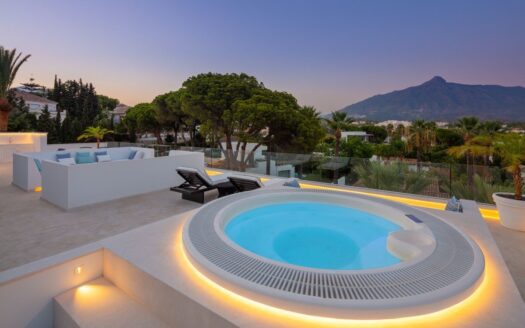




Thank you. Very Insigtful